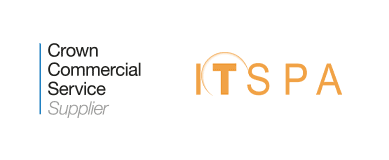A recent TV documentary raised concerns about the practices used by charities for telephone-based fundraising. We say nonsense! And we speak out about technology used by charities to ensure stringent calling standards.
Many charities and their contact centre agencies use automated dialler technology to adhere to stringent calling standards for telephone-based fundraising. Without telecanvasing, they’d fail to raise critical funds that protect and save lives.
Channel 4′s Dispatches “How to Stop Your Nuisance Calls” used undercover reporters to infiltrate charity contact centres or their agencies. Here, they exposed unethical practices leading to the nuisance calls that many people in the UK experience today.
While there are a select few instances of poor practice in call centres such as those demonstrated on Dispatches, more charities than ever are employing smart call-centre technologies that help them manage call processes and adhere to acceptable calling standards.
Ethical telephone fundraising depends on the right dialler technology
Today’s call centre technology has transformed call practices within the industry, providing companies with secure, consistent controls that would otherwise be virtually impossible to maintain. Modern technology helps charities to improve the quality of service they provide to contributors. They comply with Ofcom regulations which set acceptable calling standards within which call centres must remain. More than any organisation, a reputable charity is sensitive to people’s vulnerabilities, and does not set out to cause distress or anxiety.
A number of charities use our Hostcomm Hosted Predictive Dialler to ensure they can follow best practices that prevent nuisance calls from occurring. These best practices include the use of:
1. Targeted lists. Charities can customise their contact lists to comply with specific campaign rules, ensuring agents know the type of person they’re calling and why. Lists should be filtered with the telephone preference service (TPS) database to ensure that ‘opted-out’ contacts are not called.
2. Scripts. Call centre managers can easily re-use or adapt call scripts for each new campaign, helping agents to stay on message and follow proper procedures. The use of intelligent or logic-based scripting takes this to another level by virtually eliminating situations where the agent can go wrong.
3. Call attempts. Agencies can set call attempt limits within the system, preventing an inappropriate number of calls to an individual or number.
4. Do not contact. The call centre can easily place a block on any number where the recipient has requested no further calls.
5. PCI compliance. Built-in security features protect individuals’ data and adhere to Payment Card Industry Data Security Standard (PCI) standards. There are several PCI compliant card payment systems available, some of them do not expose the agent to the donator’s card details as well as ensuring call recordings are stripped of sensitive data.
6. Adherence to Ofcom guidelines for the use of automated diallers. By working within the guidelines you will not give anyone a reason to make a complaint to Ofcom. Hostcomm’s dialler can be set to remain within the guidelines automatically, whilst ensuring agent talk time is maximised.
Innovative and ethical fundraising campaigns
According to the Institute of Fundraising, companies are allowed to make live fundraising calls but cannot contact anyone who’s told them previously that they don't want to receive calls, or registered with a central opt-out register. Additionally, automated diallers should not be used to play recorded messages.
Chances are, charities who use technology to follow best practices are more likely to meet their fundraising targets because people are more inclined to support a charity with a good reputation that doesn’t bombard them with nuisance calls. Among them is UK-based charity Shelter, set up to help alleviate the distress caused by homelessness and bad housing.
Shelter has achieved success with its latest campaign - an initiative to welcome and thank individuals who’ve recently signed up as contributors. With the help of Hostcomm's Hosted Predictive Dialler, the charity complies with Ofcom’s acceptable calling standards and its own best practice standards. The dialler limits call attempts and reschedules calls if they’re made at an awkward time for the recipient. By managing call parameters unfailingly, Hosted Predictive Dialler has freed Shelter to implement an innovative campaign that effectively secures monthly contributions. The charity has hired agents who were helped by Shelter in the past to welcome new contributors and encourage them to continue their gifts. Contributors see the benefit of their generosity and form an emotional connection to the agents they’re talking to. As a result, the campaign has been a resounding success. You can download the full Shelter case study.
Hostcomm Hosted Predictive Dialler is a predictive dialler used by a number of charities in conjunction with highly-trained agents to raise funds legally and ethically. It helps charities to follow and set their own best practice standards within the system to ensure fundraising calls don’t fall into the nuisance category.
Through its experience with Shelter and other charities such as Sport Relief and Comic Relief, Hostcomm understands the importance of the work they undertake. Its call centre technologies offer them the tools to help strengthen public support and increase funds raised while remaining nuisance free.














